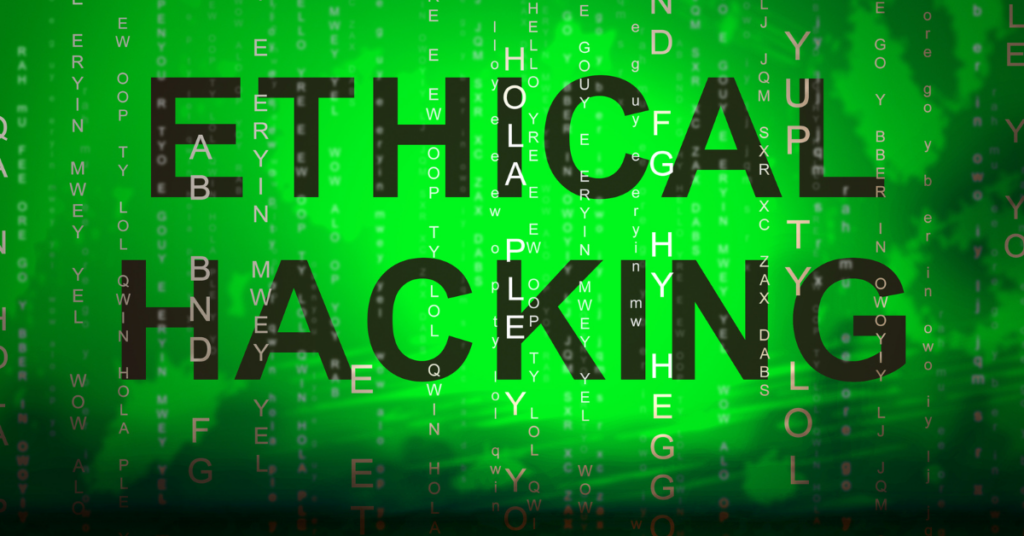What is Ethical Hacking? The Essential Guide to Legal Hacking Practices

- What is Ethical Hacking and Why is It Important in Cybersecurity?
- What are the Different Types of Ethical Hacking?
- What are the Key Steps Involved in Ethical Hacking?
- White Hat Hacker vs. Black Hat Hacker
- What are the Roles and Responsibilities of an Ethical Hacker?
- Frequently Asked Questions About What is Ethical Hacking
According to Statista, the Indian cybersecurity market will grow by 13.57% from 2023-2028. This statistic indicates that the demand for skilled cybersecurity professionals will also skyrocket. Within the domain of cybersecurity, ethical hacking stands out as a pivotal and core element in ensuring security. This blog delves into what is ethical hacking and how to become ethical hacker. It unravels the topic’s multifaceted nature and the pivotal roles and responsibilities it encompasses.
In this blog, you will learn:
- What is Ethical Hacking and Why is It Important in Cybersecurity?
- What are the Different Types of Ethical Hacking?
- What are the Key Steps Involved in Ethical Hacking?
- White Hat Hacker vs Black Hat Hacker
- What are the Roles and Responsibilities of an Ethical Hacker?
- Frequently Asked Questions About What is Ethical Hacking
What is Ethical Hacking and Why is It Important in Cybersecurity?
Ethical hacking, a crucial practice in cybersecurity, involves authorized probing of systems to understand and identify vulnerabilities. This proactive approach is, in fact, vital for preempting and defending against cyber threats. Understanding what is ethical hacking is absolutely essential for cybersecurity professionals because it equips them with the necessary skills to protect digital assets. Consequently, ethical hackers play a key role in detecting and mitigating potential security breaches and safeguarding sensitive data., With cyber attacks getting more sophisticated, there is an importance in ensuring digital safety will continue to grow.
ALSO READ: What is Cyber Safety? How Important is it in Today’s Digital Age?
What are the Different Types of Ethical Hacking?
If we delve into exploring this field, we can uncover a spectrum of distinct and specialized areas, such as:
1. Web Application Hacking
Evidently, web application hacking focuses on securing websites and online services. Therefore, ethical hackers might use tools like OWASP ZAP and Burp Suite to test web applications for vulnerabilities like SQL injection or cross-site scripting.
2. System Hacking
System hacking involves penetrating computer systems to identify and rectify security flaws. They play a critical role in ensuring the security of essential IT infrastructure.

3. Network Hacking
This type of hacking focuses on securing the networks that connect various digital systems. Ethical hackers might employ tools like Wireshark and Aircrack-ng to analyze network traffic and identify potential security breaches. In essence, their work is crucial in maintaining the integrity and safety of data transmission across networks.
4. Wireless Security Hacking
In the wireless domain, this profession is increasingly important due to the proliferation of wireless devices. Moreover, their efforts ensure the safety of wireless communications in both public and private settings.
5. Social Engineering
It involves testing security protocols by understanding and manipulating human behavior to share personal information.
ALSO READ: What is CTEM and Why is It Important? Understanding CTEM in a Nutshell
What are the Key Steps Involved in Ethical Hacking?
There are different phases in this process. These, for example, include:
1. Reconnaissance
The first step in ethical hacking is reconnaissance or information gathering. Ethical hackers might use tools like Maltego or Shodan to gather critical information about the target. Consequently, this step lays the groundwork for all subsequent hacking activities.
2. Scanning
Following reconnaissance, scanning is the next critical step. It involves using tools like Nessus or Nmap to scan the target for open ports and vulnerabilities. As a matter of fact, this phase helps ethical hackers understand potential entry points in the system.
3. Gaining Access
Gaining access is often considered the heart of this. Ethical hackers use various methods, like exploiting vulnerabilities or social engineering, to gain unauthorized access.
4. Maintaining Access
Once access is gained, maintaining that access is essential for thorough testing. This step allows for the in-depth analysis of vulnerabilities and their potential impact.
5. Covering Tracks
Finally, covering one’s tracks is an ethical imperative in ethical hacking. It not only involves erasing all traces of the hacking process but also entails ensuring that the system remains secure. Accordingly. tools like CCleaner or codes like custom scripts are often used to clean logs and temporary files.
ALSO READ: Ethical Hacking vs. Cyber Security: Important Differences You Should Know About
White Hat Hacker vs. Black Hat Hacker
There are two types of hackers– white hat and black hat hackers. Here’s a list of their key differences:
| Aspect | White Hat Hackers | Black Hat Hackers |
| Definition | White hat hackers are professionals who embody the principles of ethical hacking | Black hat hackers exploit vulnerabilities for personal gain and/or malicious intent |
| Activities | Conduct authorized penetration testing and vulnerability assessments | Engage in activities like deploying malware, launching attacks, and stealing data |
| Purpose | Aim to identify and fix security weaknesses before they can be exploited | Seek to exploit security weaknesses for personal and financial gain |
| Ethical Standards | Adhere to high ethical standards and use their skills for the greater good of digital security | Cross ethical boundaries and use their skills to harm and exploit |
| Role in the Digital World | Act as defenders in the digital world by using their ethical hacker skills, and are authorized to test and secure networks and systems | Act as adversaries in the cybersecurity landscape and exploit vulnerabilities for malicious purposes |
What are the Roles and Responsibilities of an Ethical Hacker?
1. Simulating Cyberattacks
To begin with, the primary responsibility of an ethical hacker is to conduct authorized penetration tests. These tests simulate cyberattacks to identify vulnerabilities in systems and networks.
2. Upskilling
To become an ethical hacker, one must possess a comprehensive set of skills. These include a deep understanding of networking, systems, and techniques that various types of hackers deploy to exploit a system.
3. Staying Ahead of Cyber Threats
The cybersecurity landscape is ever-evolving. Furthermore, new threats keep emerging on the horizon regularly. Therefore, staying informed about the latest security trends and techniques is paramount for ethical hackers.
4. Upholding Ethical Standards
What is ethical hacking? What is deploying hacking techniques for security purposes while adhering strictly and uncompromisingly to ethical standards? Ethical hackers must always operate within legal boundaries and with the utmost integrity. Moreover, their work should aim to protect and not harm the systems they are testing.
ALSO READ: What Will an Era of Cognitive Robots Look Like in the Future?
Frequently Asked Questions About What is Ethical Hacking
1. How Does Ethical Hacking Differ From Malicious Hacking?
To begin with, ethical hacking is authorized and aims to improve security. In contrast, malicious hacking is both illegal and harmful. Ethical hackers have permission to test systems, while malicious hackers exploit vulnerabilities for personal gain or damage.
2. What are the Potential Legal and Ethical Considerations in Ethical Hacking?
Legal and ethical considerations in ethical hacking include obtaining explicit permission and adhering to laws and regulations. Furthermore, ethical hackers must maintain confidentiality and integrity, ensuring their actions don’t harm the systems they test.
3. Is Ethical Hacking a Good Career?
Evidently, ethical hacking makes for a rewarding career with growing demand due to the increasing importance of digital security. In addition to this, it offers continuous learning and diverse challenges, making it a fulfilling path for those with the right ethical hacker skills and interest in cybersecurity. On average, ethical hackers in India earn around ₹3,18,370 per month.
4. Is Ethical Hacking Allowed?
Ethical hacking is allowed and encouraged within legal and ethical boundaries. As a matter of fact, organizations hire ethical hackers to strengthen cybersecurity. But all these activities must be authorized and adhere to strict guidelines.
To conclude, if you’re looking to delve deeper into what is ethical hacking and want to know more about how to become ethical hacker, consider joining Emeritus’ cybersecurity courses and stand out in the cybersecurity job market.
Write to us at content@emeritus.org



